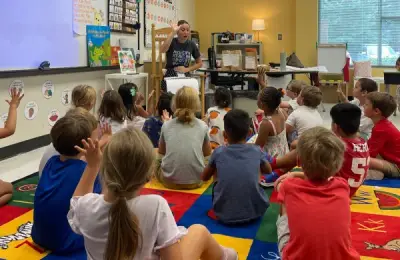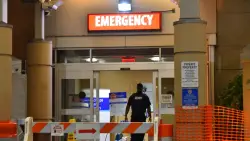Georgia’s school voucher program is starting, with lower demand than expected

Thousands of Georgians will soon be spending money from the state’s new subsidy for private K-12 education, as the first quarterly payouts appear in “promise scholarship” accounts. More than 15,000 students applied for one of the $6,500 annual subsidies, and about 8,500 were approved. That means the state is on track to give about $55 million in taxpayer dollars — far less than budgeted — to families that have chosen private schooling over attendance at their nearby low-performing public school. To qualify for the payments, most students had to spend a year attending one of the nearly 500 public schools performing in the bottom quarter of state academic measures. But the youngest students have a way around that requirement. Under last year’s law establishing the payments, often referred to as a “voucher,” rising kindergartners need not have attended public school to qualify. According to new figures from the Georgia Student Finance Commission, which oversees the program, a third of the recipients will be attending kindergarten. Nearly half will be in elementary school, with the rest in seventh through 12th grades. The money will be paid out quarterly, starting this month. Families can use it for a variety of education-related expenses. Two-thirds said they plan to spend it on tuition, according to the commission. The rest will use it to cover home schooling costs and other allowable expenses, such as tutoring, therapy and curriculum. Opponents of these vouchers argued they would mostly be used by the wealthy, who are more able to afford the difference between the amount of the subsidy and the cost of private school tuition, which can exceed $10,000 a year. As state Republican lawmakers were pushing Senate Bill 233 to final passage last year, Sen. Nabilah Islam Parkes, D-Duluth, summarized the opposition, mostly from fellow Democrats. The vouchers are “a mirage for families like mine and for countless others across our state,” she said on the Senate floor, adding that they would undermine education for kids who don’t choose private school, since public schools would lose state funding for each student who took a voucher. “It is a battle for the soul of our education system,” Parkes said. “I’ve got news for you,” responded Sen. Greg Dolezal, R-Cumming, the chief co-sponsor of the bill. “The wealthy already have school choice, including some wealthy members in this room who have been able to exercise school choice for their own children.” Supporters of the bill, which Gov. Brian Kemp signed into law a month after passage, said the loss of state funding for public schools would not hurt them because they would no longer have to cover the cost of educating the voucher recipients. The commission reports that three quarters of recipients are “lower-income,” meaning the students are coming from households with incomes at or below four times the federal poverty level. ($106,600 a year for a family of three and $128,600 for a family of four.) Half of the recipients are Black and a third are white. Two metro Atlanta districts will lose the most students — DeKalb County, with nearly 900 scholarship recipients, and Henry County, with nearly 800. Others rounding out the top five districts losing students to vouchers are Bibb County, at nearly 600 students; Richmond County at nearly 500, and Savannah-Chatham County with more than 400. The commission cautioned that the numbers are a moving target because some students may yet opt out. But the participation numbers are well below the $141 million that lawmakers budgeted for this school year. Tony West, Georgia director of Americans for Prosperity, a group that lobbied for this program, attributed the low participation to several potential reasons: parents haven’t heard of the program yet, they know about it but are skeptical or they did not apply because they do not live in the attendance zone of an eligible public school. Only 56% of applicants were approved, which suggests that many who applied do not live near an underperforming school. Address and state residency were the two main qualifying criteria. “I think that strongly suggests that the eligibility requirements are too restrictive,” said West, who noted that 16 states with similar scholarship programs have not based eligibility on address. He can see his group lobbying state lawmakers to convert Georgia’s program to universal access. “We’ll see what the political appetite is moving forward,” he said. The post Georgia’s school voucher program is starting, with lower demand than expected appeared first on Rough Draft Atlanta.

